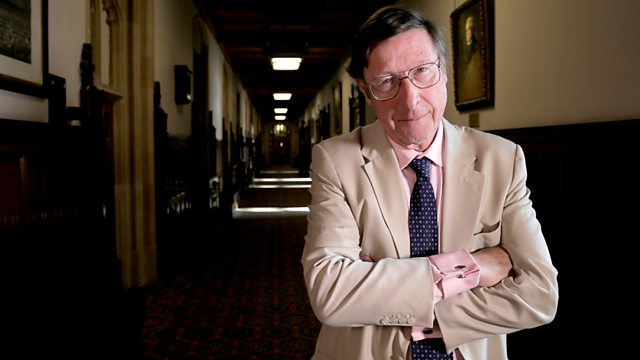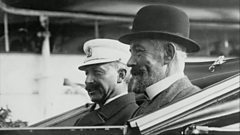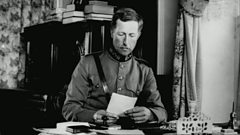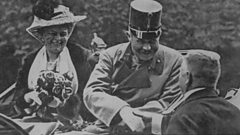
The Necessary War
In a documentary to mark the 100-year anniversary of the outbreak of World War I, Sir Max Hastings argues that although the war was a great tragedy, it was far from being futile.
Our perceptions of the First World War today are dominated by the idea it was a futile conflict, a colossal waste of life, and an immense tragedy for Britain and all of Europe. It is a view that has been fostered by the war poets who wrote vividly about the experience of trench warfare, and by countless novels, films and television programmes in the years since. Many even go as far as suggesting that the First World War led directly to the rise of Hitler and the outbreak of the Second World War.
In a single documentary to mark the 100-year anniversary of the outbreak of war, Sir Max Hastings presents the argument that although it was a great tragedy, far from being futile, the First World War was completely unavoidable.
Max presents the case that the rulers of Germany in 1914 were intent on dominating Europe and, after Archduke Franz Ferdinand was assassinated in June 1914, actively encouraged the Austrians to invade Serbia. They were responsible for igniting the spark that turned a local controversy into a full-blown European war.
He also argues that once the Germans decided to invade France through neutral Belgium, it was impossible for Britain, mindful of its own position within Europe and a guarantor of the small state's neutrality, to simply stand by. Not only that, when the conflict was only weeks old, the Germans were already compiling a shopping list of key territories they would seize after victory to secure their complete domination of Europe.
Through conversations with the world's most eminent World War I scholars and military historians, including Sir Michael Howard, Sir Hew Strachan, Professor John Rohl and Professor Margaret MacMillan, Max explores the key questions surrounding the outbreak of the war and the necessity for Britain to step in.
He also explores how and why, once the war was over, the common perception of the conflict as a bungled, unnecessary bloodbath emerged. He examines the misconceptions that surround the Versailles peace agreement, which many unfairly blame for the outbreak of the Second World War, and the sense of disappointment and frustration created by economic and political turmoil of the 20s and 30s.
In conclusion Max argues that, while the centenary of the war is not a cause of jubilation, we should tell our children and grandchildren that their ancestors did not fight for nothing; if Germany had won, Europe would have paid a far more terrible price.
Last on
Clips
-
![]()
Britain's entry into the war
Duration: 02:34
-
![]()
Who pulled the lever?
Duration: 02:33
-
![]()
Drawn into war
Duration: 02:16
Follow us on Twitter

The latest World War One content on Βι¶ΉΤΌΕΔ TV, Radio and Online.
Μύ
Credits
| Role | Contributor |
|---|---|
| Presenter | Max Hastings |
| Executive Producer | Denys Blakeway |
| Producer | Karen McGann |
| Director | Karen McGann |
| Participant | Michael Howard |
| Participant | Hew Strachan |
| Participant | John Rohl |
| Participant | Margaret MacMillan |
Broadcasts
- Tue 25 Feb 2014 21:00
- Wed 26 Feb 2014 23:20Βι¶ΉΤΌΕΔ Two except Northern Ireland & Wales
- Thu 27 Feb 2014 00:00Βι¶ΉΤΌΕΔ Two Wales
- Thu 27 Feb 2014 23:20Βι¶ΉΤΌΕΔ Two Northern Ireland
- Wed 4 Jun 2014 01:20Βι¶ΉΤΌΕΔ Two except Scotland
- Wed 4 Jun 2014 01:50Βι¶ΉΤΌΕΔ Two Scotland
- Wed 4 Jun 2014 23:50Βι¶ΉΤΌΕΔ Two Scotland
World War One at the Βι¶ΉΤΌΕΔ
New perspectives on the war that changed everything.
The Pity of War - Was Britain right to go to war in 1914?
Join the debate from 8pm on Friday 28th February, post your comments or follow @Βι¶ΉΤΌΕΔWW1.




